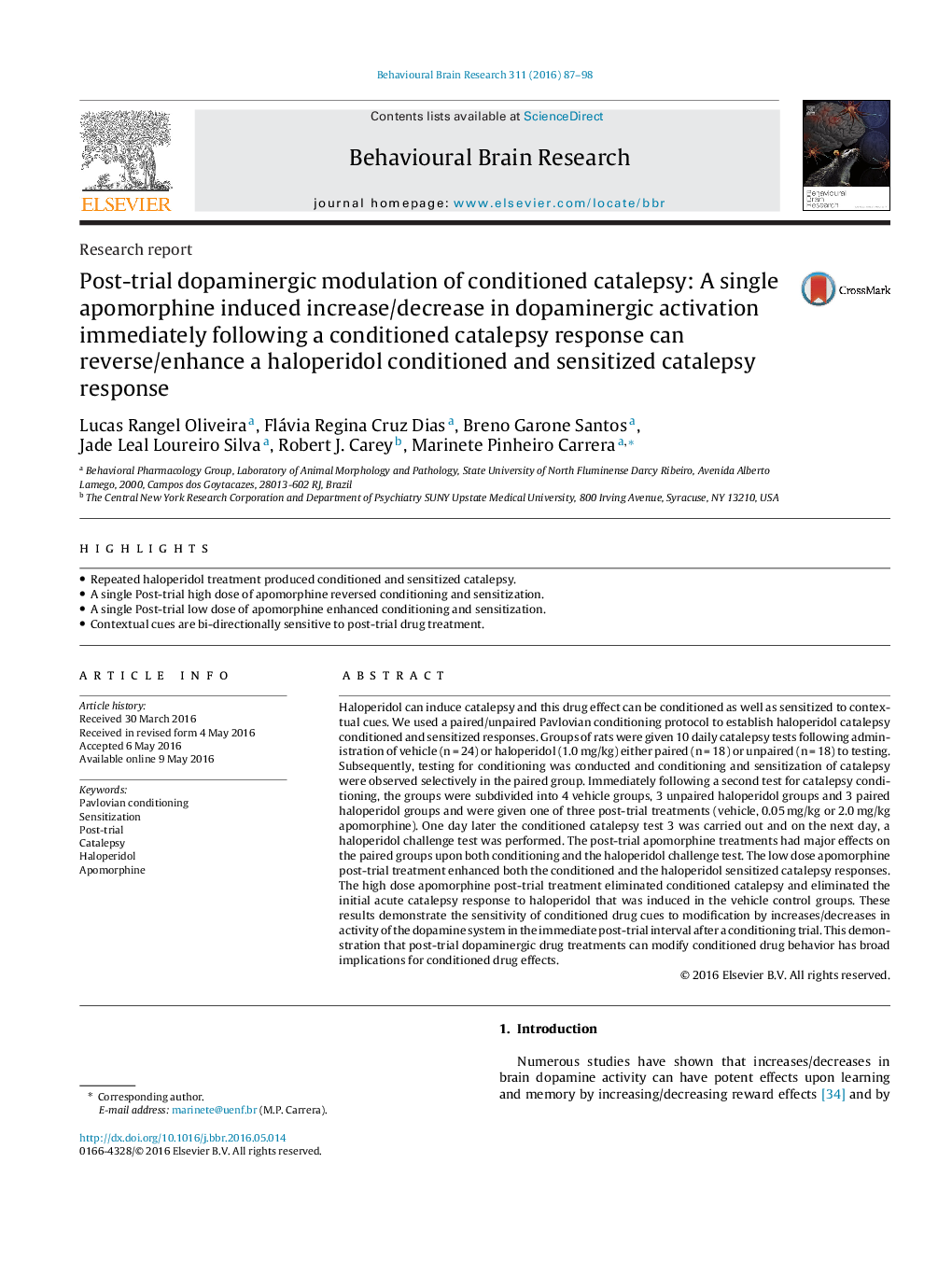| Article ID | Journal | Published Year | Pages | File Type |
|---|---|---|---|---|
| 6255907 | Behavioural Brain Research | 2016 | 12 Pages |
â¢Repeated haloperidol treatment produced conditioned and sensitized catalepsy.â¢A single Post-trial high dose of apomorphine reversed conditioning and sensitization.â¢A single Post-trial low dose of apomorphine enhanced conditioning and sensitization.â¢Contextual cues are bi-directionally sensitive to post-trial drug treatment.
Haloperidol can induce catalepsy and this drug effect can be conditioned as well as sensitized to contextual cues. We used a paired/unpaired Pavlovian conditioning protocol to establish haloperidol catalepsy conditioned and sensitized responses. Groups of rats were given 10 daily catalepsy tests following administration of vehicle (n = 24) or haloperidol (1.0 mg/kg) either paired (n = 18) or unpaired (n = 18) to testing. Subsequently, testing for conditioning was conducted and conditioning and sensitization of catalepsy were observed selectively in the paired group. Immediately following a second test for catalepsy conditioning, the groups were subdivided into 4 vehicle groups, 3 unpaired haloperidol groups and 3 paired haloperidol groups and were given one of three post-trial treatments (vehicle, 0.05 mg/kg or 2.0 mg/kg apomorphine). One day later the conditioned catalepsy test 3 was carried out and on the next day, a haloperidol challenge test was performed. The post-trial apomorphine treatments had major effects on the paired groups upon both conditioning and the haloperidol challenge test. The low dose apomorphine post-trial treatment enhanced both the conditioned and the haloperidol sensitized catalepsy responses. The high dose apomorphine post-trial treatment eliminated conditioned catalepsy and eliminated the initial acute catalepsy response to haloperidol that was induced in the vehicle control groups. These results demonstrate the sensitivity of conditioned drug cues to modification by increases/decreases in activity of the dopamine system in the immediate post-trial interval after a conditioning trial. This demonstration that post-trial dopaminergic drug treatments can modify conditioned drug behavior has broad implications for conditioned drug effects.
